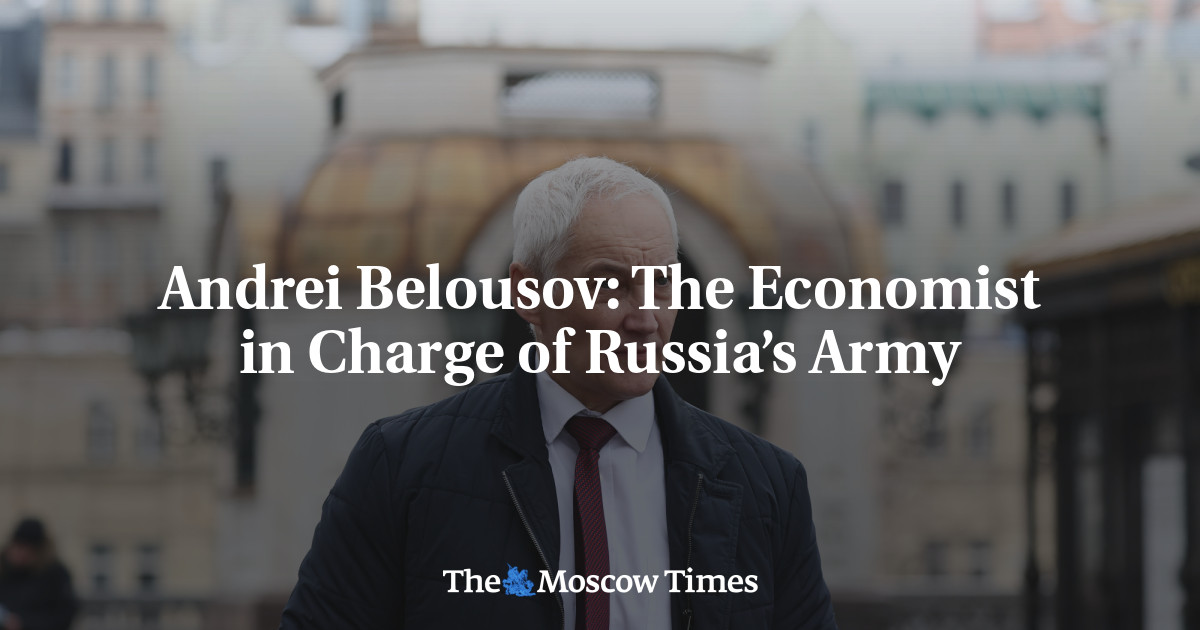
An economist and technocrat with no military background, Russia’s new Defense Minister Andrei Belousov has been tasked with deploying his number-crunching skills and bureaucratic oversight to secure Russian victory against Ukraine.
Belousov has been one of President Vladimir Putin’s most trusted and influential advisers and is widely seen as his point man on all things related to the domestic economy.
His move to the Defense Ministry signals a shift in the Kremlin’s understanding of the current state of the conflict and of how it can beat Ukraine: by outspending Kyiv and outlasting the West.
“For the West, Belousov’s appointment as defense minister is bad news. It is the development of the theme of a war of attrition,” independent Russian political analyst Konstantin Kalachev said.
“The main aim is to exhaust and bleed out the enemy, and cause fatigue and discord among its allies,” he added.
Belousov, 65, is unlikely to have a big sway over military decisions. Instead, he will oversee the billions of dollars Moscow spends on everything from missiles, tanks and bullets to soldiers’ salaries and welfare payments.
On Monday, Belousov said he would tackle “excessive bureaucracy” at the ministry.
The Rybar Telegram channel, which is close to the Russian military, said Belousov would oversee a “major audit and restructuring” of the army’s finances and approach to procurement.
The Defense Ministry was rocked by a corruption scandal in April when Deputy Defense Minister Timur Ivanov — a key ally of Belousov’s predecessor Sergei Shoigu — was arrested on suspicion of taking bribes.
‘Innovation’
As First Deputy Prime Minister Belusov has pushed for aggressive state spending to boost arms production and overcome Western sanctions.
Russia’s military spending has swelled to around 7% of GDP this year.
“He’s somebody Putin trusts, especially when it comes to economic issues,” Rybar noted.
The Kremlin said Belousov’s background made him the right fit to take over the Defense Ministry at this juncture.
“Today the winner on the battlefield is the one who is more open to innovation,” state news agencies quoted Putin’s spokesman Dmitry Peskov as saying.
“It is very important to fit the economy of the security sector into the economy of the country,” he added.
Valery Gerasimov, the Chief of the General Staff who oversees military operations and reports directly to Putin is set to stay in place — a sign that Belousov will have little influence over decisions on the ground.
But his appointment signifies a growing belief in Moscow that victory could be determined by developments far away from the front lines.
“There is an iron logic to this. Today, the strongest person is the one who can combine the war and the economy in the most comfortable way for the country,” said Alexander Sladkov, a pro-Kremlin military blogger.
Trusted Putin adviser
The son of a renowned Soviet economist, Belousov has steadily risen through the government’s ranks under Putin’s quarter-century rule.
Born in 1959 in Moscow, he graduated from Moscow State University and started his career at the Institute of Economic Forecasting at the Russian Academy of Sciences.
During Putin’s first two terms as president he was an outside adviser to various prime ministers and became deputy economy minister in 2006.
When Putin stepped aside to become prime minister in 2008, Belousov headed his economic and financial affairs team.
With Putin’s 2012 return to the Kremlin, he became economic development minister and a year later an adviser to the president.
Belousov gained a reputation as one of Putin’s most trusted domestic advisers. He was appointed deputy prime minister in 2020, overseeing support for Russian businesses during the coronavirus pandemic.
After Moscow sent troops into Ukraine in February 2022, he was tasked with protecting the Russian economy from the fallout of Western sanctions and reorientating it to support the offensive.
During the conflict Belosov has been a key player in developing Russia’s domestic drone-manufacturing sector, and one of his last official big projects was boosting Russia’s “technological sovereignty.”